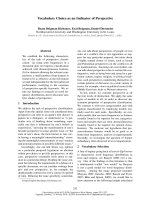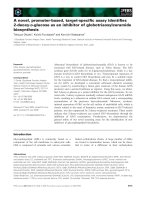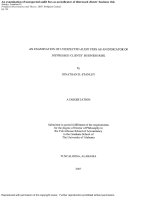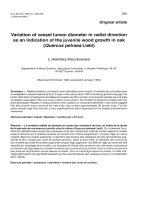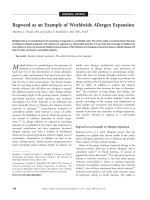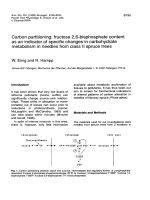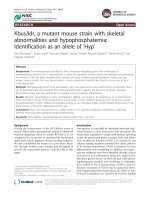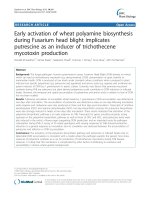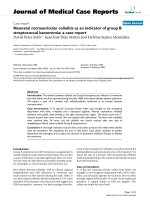Rather as an adverb of degree
Bạn đang xem bản rút gọn của tài liệu. Xem và tải ngay bản đầy đủ của tài liệu tại đây (11.41 KB, 1 trang )
Rather as an adverb of degree
Rather can be used as an adverb of degree. This use of rather is common in British English. As an adverb of
degree, rather has a similar meaning to ‘quite’ or ‘fairly’. However, it is more emphatic.
In American English, rather is not normally used as an adverb of degree.
With adjectives and adverbs
When used with adjectives and adverbs, rather suggests ideas such as ‘more than was expected’ or ‘more than
was usual’. Unlike too, which is also used to express similar ideas, rather does not have a negative meaning.
‘How is your new job?’ ‘Rather good.’ (Here rather is used with an adjective.)
‘She speaks English rather well – people often think that she is a native speaker.’ (Here rather is used
with an adverb.)
With nouns
Rather can modify noun phrases. If there is no adjective with the noun, rather goes before articles. If there is an
adjective, rather can go either before or after the article.
He is rather a criminal. (NOT He is a rather criminal.)
That was rather a good idea. OR That was a rather good idea.
We do not normally use rather to modify a plural noun used without an adjective.
Rather can also modify verbs.
She rather enjoys playing with her kids.
I rather think she is making a mistake.
With comparatives and too
Rather can be used to modify comparative adjectives and adverbs. It can also be used to modify too.
It was rather too much.
It was rather better than I expected.
Stay on top of your writing! Download our grammar guide from www.englishgrammar.org to stay up-to-date.
Powered by TCPDF (www.tcpdf.org)

